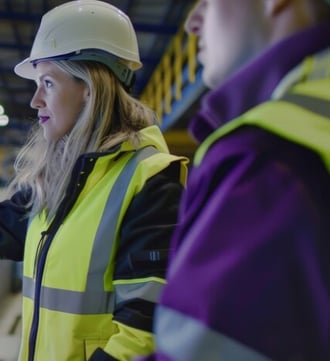Deborah Washington
My name is Deborah Washington, and my research focuses on predictive maintenance within the framework of Industry 4.0. With a background in industrial engineering and data analytics, I am particularly interested in how emerging technologies—such as IoT sensors, machine learning, and cyber-physical systems—can be used to anticipate equipment failures before they occur. In today's digitally connected factories, predictive maintenance is not just a cost-saving tool, but a strategic enabler of operational resilience, asset longevity, and intelligent automation.
In my work, I develop data-driven models using supervised learning, time-series forecasting, and deep neural networks to detect anomalies and predict remaining useful life (RUL) of industrial components. I also explore hybrid approaches that combine physics-based models with machine learning algorithms to improve accuracy and interpretability. These models are trained using sensor data such as vibration, temperature, and acoustic signals captured in real time from critical assets like CNC machines, turbines, and robotics. My focus is on building scalable and generalizable solutions that can adapt to varying industrial contexts.
While the technical potential of predictive maintenance is well recognized, real-world implementation faces significant challenges. These include poor data quality, sensor noise, lack of labeled failure data, integration with legacy systems, and organizational resistance. I address these issues by developing robust data preprocessing pipelines, transfer learning strategies for low-failure environments, and human-AI collaboration frameworks to ensure that maintenance teams can effectively interpret model outputs. My work also emphasizes cybersecurity and data governance, especially in the context of distributed IIoT environments.
Looking ahead, my mission is to help organizations transition from reactive and scheduled maintenance models to fully predictive and prescriptive strategies powered by AI and Industry 4.0 technologies. I am currently exploring federated learning for cross-site model training and developing explainable AI methods that build user trust. Ultimately, I aim to contribute to the design of smart factories where equipment health is continuously monitored, maintenance is proactive and data-driven, and productivity is maximized with minimal environmental impact. Through interdisciplinary collaboration, I seek to shape the future of sustainable industrial intelligence.





Data-Driven Solutions
Transforming manufacturing with advanced data integration, predictive modeling, and intelligent maintenance recommendations.
Data Platform Solutions
Comprehensive data integration and predictive modeling for enhanced manufacturing maintenance and operational efficiency.




Predictive Modeling
Utilizing advanced models for accurate remaining useful life predictions and anomaly detection in operations.
Root Cause Analysis
Leveraging fine-tuned models to generate insightful maintenance recommendations and root-cause analyses for incidents.

“Explainable Anomaly Detection: Chain‐of‐Thought & Visualization” (2023, ICLR)
Applied chain‐of‐thought to industrial sensor data, generating visual multi‐step reasoning with 0.91 expert agreement.
“Edge–Cloud AI Collaboration in Smart Manufacturing” (2024, IEEE IoT Journal)
Evaluated edge vs. cloud inference tradeoffs, achieving <100ms latency and 99% stability, guiding our deployment strategy.
“GANs for Synthetic Machine Vibration Data” (2025, forthcoming)
Presented IoT‐GAN for synthesizing vibration signals to augment rare-fault scenarios, improving recall by 25%, underpinning our data‐augmentation approach.
These studies reflect our deep expertise in time‐series forecasting, self‐supervised learning, explainable AI, edge–cloud orchestration, and GAN‐based data synthesis, providing a strong foundation for this project.